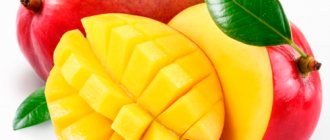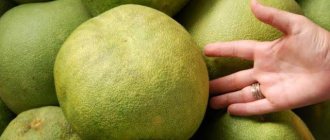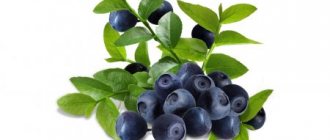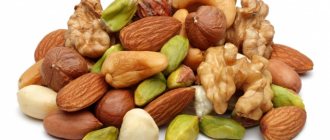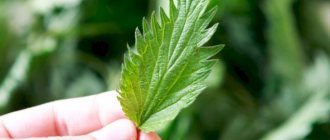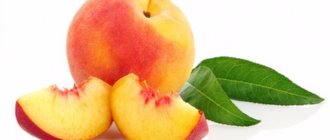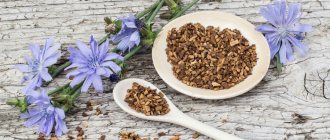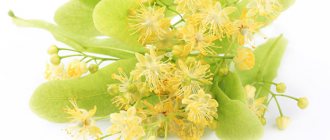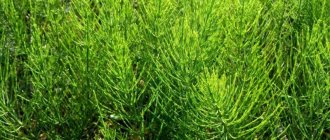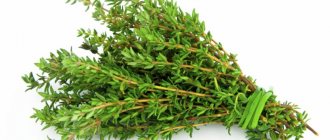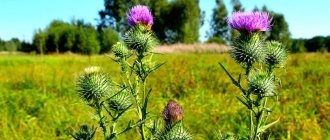Medicinal properties
Dill water helps prevent problems with the gastrointestinal tract in a nursing mother, which can be expressed by indigestion, flatulence, constipation or colitis. If milk retention is poor, you can quickly normalize lactation with this drink. The water itself contains a large amount of essential vitamins for the child and helps maintain the functioning of his immune system.
Dill water can get rid of colic and prevent its occurrence; it fights constipation in a child and has a calming effect, helping the baby fall asleep faster. Therefore, taking it while breastfeeding will benefit not only her, but also the baby.
Fennel will relieve spasms of smooth muscles and facilitate the process of passing gases. At the same time, the functioning of the entire digestive system improves, and an antimicrobial effect is noted.
What does a homemade decoction of dill seeds help with?
Using greens as a seasoning for dishes, we don’t think about how healthy this or that product, vegetable, or fruit is. Dill contains a whole complex of elements and vitamins. Of course, all greens are unusually rich for the body, but by consuming dill, a person receives 2 times more magnesium than, for example, cilantro or parsley.
Dill seeds contain:
- Oleic, linoleic and palmitic acids.
- Essential oils – their main property is bactericidal, that is, the fight against microbes.
- Potassium – helps against edema and hypertension.
- Magnesium – participates in muscle contractions of the intestines, has a calming effect on its muscles, and reduces the number of spasms.
- Glutathione - helps fight certain types of cancer, namely, prevents the development of tumor cells in the human body.
- Flavonoids are natural antioxidants that reduce the risk of diabetes, osteoporosis, cardiovascular diseases and cancer.
- Vitamins A, B and C;
- Elements that serve as a diuretic and laxative.
The essential oils contained in dill have extraordinary healing properties, so they are used not only in folk medicine, but are also used in the production of some medications. For example, Riciniol dill, which becomes especially popular during cold weather and colds.
Dill fruits are especially rich in oils, while vitamins predominate in greens.
Riciniol dill is a modification of the standard drug Riciniol, which is a universal emulsion that solves any problems of burns, cuts, bites, wounds, abrasions and other injuries. At one time, it became so popular that manufacturers decided to expand the line of drugs based on it and create additional products.
This is how Dill Riciniol appeared - this is the same basic drug, but with the addition of dill essential oil and sea salt. These supplements are made to effectively combat the runny nose.
It is believed that a decoction of dill (grains brewed with hot water) should be taken for hypertension, angina pectoris, muscle spasms of the stomach and intestines, signs of allergic dermatitis, insomnia and nervous disorders, trophic ulcers, the need to achieve a diuretic, laxative effect. Among other things, dill seeds increase appetite and improve digestion.
Gedelix during pregnancy: 4 contraindications for use
How to make dill water
Naturally, it is easier to buy a ready-made solution at a pharmacy, but to save money you can prepare it yourself - the main thing is to know how many seeds to use. There are two main methods of preparation:
- Pour 200 ml of boiling water over a teaspoon of plant seeds, let it brew in a closed container for 1 hour, and only then drink.
- Recipe for cooking in a water bath. Pour hot water over the seeds and keep in a water bath for 30 minutes. At the end, the infusion should be strained and drunk.
Can pregnant women eat these greens fresh, drink decoctions or not?
Reference! An expectant mother's diet must include greens.
Dill is considered a healing herb. It can be added to any dish:
- meat;
- soup;
- borsch;
- bakery.
Not a single salad is complete without dill. Dill water is prepared from dill seeds. This decoction stabilizes intestinal function.
In the early stages
At the beginning of the term, many pregnant women have an urgent need for vitamins, which are contained in greens, in particular dill.
In the first weeks of pregnancy, there is sometimes a lack of appetite. To replenish the necessary nutrients, you should prepare meat broth and add fresh dill to it. Dill greens perfectly help to cope with morning sickness and toxicosis in the early stages of pregnancy, reducing the urge to vomit in the morning.
During late periods
Before childbirth, the body requires more and more vitamins, and the need for greens increases.
- The essential oils contained in dill stabilize the emotional state, soothe and help eliminate excessive excitability.
- In the last stages of pregnancy, difficulties arise with removing excess fluid from the body. Dill will cope well with this problem. It will help relieve unwanted swelling.
- Substances from dill decoction improve the functioning of the heart muscle and have a positive effect on the smooth muscles of the uterus, promoting labor.
Dill during pregnancy
During pregnancy, dill will allow the fetus to develop better and grow properly. It helps improve the health of the expectant mother because it fights nausea and headaches, normalizes sleep and calms, reduces high blood pressure, and helps with bloating. All of these signs often plague pregnant women.
Fennel will help remove excess fluid from the body of pregnant women. It contains a large number of substances necessary for pregnancy: folic acid, potassium and calcium, nicotinic acid, iron, phosphorus, etc. In addition, dill is rich in vitamins B, C and A, various essential oils and pectins.
Fennel is a low-calorie and vitamin-rich plant, which is characterized by the absence of contraindications, so dill water often becomes an indispensable remedy for pregnant women and nursing mothers, as well as for babies.
Precautionary measures
Precautions for consuming dill during pregnancy are simple.
Firstly, before generously sprinkling all your culinary masterpieces with herbs, you should consult your doctor. The gynecologist who is caring for the pregnancy knows all the characteristics of the body and can tell whether dill is worth eating.
Secondly, you should not overeat on greens before going outside, especially if you are going to be outside the house for a long time. Dill has diuretic and laxative properties, so you may need to use the restroom very soon.
Thirdly, you cannot add greens to your diet if a woman is worried about abdominal pain, spotting and other alarming symptoms: first you need to see a doctor and find out the cause of the symptoms.
Fourthly, after appreciating the benefits of dill, there is no need to eat it in boxes. A reasonable dose is considered to be half a bunch (20-30 g) per day.
Finally, it is better to refrain from the spice if a woman has had unsuccessful pregnancies in the past: frozen or ectopic, premature birth, miscarriages.
Chemical composition of dill
Dill is an annual herbaceous plant that has a number of beneficial properties. It contains the vitamins and minerals necessary for the body, while the composition of greens and mature seeds is different.
Fresh greens are rich in vitamins C and B9, as well as iron. These components stimulate hematopoiesis, which is why dill is so useful in preventing anemia.
| Nutritional indicator | Amount per 100 g of edible part of the plant | % of recommended daily intake |
| Calorie content | 43 kcal | 2% |
| Water | 85.95 g | — |
| Carbohydrates | 4.92 g | 2% |
| Alimentary fiber | 2.1 g | 11% |
| Fats | 1.12 g | 2% |
| Squirrels | 3.46 g | 6% |
| Vitamin A | 386 mcg | 43% |
| Vitamin C | 85 mg | 94% |
| Vitamin B1 | 0.06 mg | 4% |
| Vitamin B2 | 0.3 mg | 17% |
| Vitamin B5 | 0.4 mg | 8% |
| Vitamin B9 | 150 mcg | 38% |
| Vitamin PP | 3.37 mg | 17% |
| Potassium | 738 mg | 30% |
| Calcium | 208 mg | 21% |
| Magnesium | 55 mg | 14% |
| Sodium | 61 mg | 5% |
| Phosphorus | 66 mg | 8% |
| Iron | 6.59 mg | 37% |
| Manganese | 1.26 mg | 63% |
| Copper | 0.15 mg | 15% |
| Zinc | 0.91 mg | 8% |
Dill seeds have other qualitative and quantitative indicators of nutritional value. They contain fewer vitamins and more minerals compared to greens.
The composition of dill seeds is presented in the table
| Nutritional indicator | Amount per 100 g of dry seeds | % of recommended daily intake |
| Calorie content | 305 kcal | 15% |
| Water | 7.7 g | — |
| Carbohydrates | 34.07 g | 12% |
| Alimentary fiber | 21.1 g | 106% |
| Fats | 14.54 g | 22% |
| Squirrels | 15.98 g | 27% |
| Vitamin A | 3 mcg | 0% |
| Vitamin C | 21 mg | 23% |
| Vitamin B1 | 0.42 mg | 28% |
| Vitamin B2 | 0.28 mg | 16% |
| Vitamin B6 | 0.25 mg | 13% |
| Vitamin B9 | 10 mcg | 3% |
| Vitamin PP | 2.81 mg | 14% |
| Potassium | 1186 mg | 47% |
| Calcium | 1516 mg | 152% |
| Magnesium | 256 mg | 64% |
| Sodium | 20 mg | 2% |
| Phosphorus | 277 mg | 35% |
| Iron | 16.33 mg | 91% |
| Manganese | 1.83 mg | 92% |
| Copper | 0.78 mg | 78% |
| Selenium | 12.1 mcg | 22% |
| Zinc | 5.2 mg | 43% |
Contraindications
Contraindications to the use of dill during pregnancy are:
- risk of premature birth;
- risk of miscarriage;
- hypertonicity of the uterus;
- liver and kidney diseases;
- lack of intestinal tone and chronic constipation;
- anemia;
- low blood pressure.
The benefits and harms of dill
Dill is actively used in folk medicine. And this is not surprising, because the plant contains many vitamins (A, C, E, B), useful acids and minerals.
When consumed regularly, dill has the following effects on the body:
- normalizes the functioning of the gastrointestinal tract;
- reduces blood pressure;
- reduces gagging;
- improves kidney function;
- has a beneficial effect on the nervous system.
It also normalizes liver function and relieves bile stagnation in the body. The vasodilating effect of dill is also noted, relieving headaches. Read more about dealing with headaches during pregnancy→
It is almost impossible to harm yourself with this spice. The exception is excessive consumption of dill (more than one medium-sized bunch per day). In this case, severe nausea and dizziness may occur.
Abuse of dill is highly discouraged for pregnant women who have been diagnosed with a risk of premature birth. A large amount of this greenery can stimulate labor. In ancient times, this feature of dill was even used by midwives during obstetrics.
Another hidden threat lurks in insufficiently washed plant shoots. Any garden greens (even those grown independently) can contain helminth eggs, E. coli and other dangerous microorganisms.
Therefore, to protect yourself, before consuming dill, you need to rinse it thoroughly and under no circumstances eat it directly from the garden.
What is its use?
Studies have proven that the use of dill has a beneficial effect even on a psychological level - the essential oils that this plant produces calm, help eliminate excessive excitability and anxiety of the expectant mother.
That is why pregnant women subconsciously try to use dill in their diet throughout pregnancy.
In addition, traditional medicine has noted the beneficial effect of all parts of this plant on the processes developing in the digestive organs - dill enhances the contractility of the smooth muscles of the internal organs, which helps stimulate peristalsis of the digestive tract and prevent unwanted gas formation in the small intestine and large intestine.
Essential oils of dill help preserve and restore the disturbed microflora of the large intestine, which helps prevent the development of fermentation and putrefactive processes that develop as a result of dysbiosis.
Under the influence of dill essential oils, the tone of the biliary tract is restored and bile secretion is normalized , which helps prevent the progression of symptoms of toxicosis in the first half of pregnancy.
In the second half of pregnancy, doctors pay attention to the cardiotonic, diuretic and laxative effects of dill - these properties of the plant help reduce blood pressure and improve kidney function , which is indispensable for the prevention of toxicosis in the second half of pregnancy, and constipation, which almost every pregnant woman faces in the last weeks before childbirth.
Traditional medicine specialists also recommend paying attention to the bronchodilator, expectorant and anti-inflammatory effects of dill - with the help of this plant you can treat colds that occur during a period when the use of antibiotics and many drugs traditionally prescribed for the treatment of cough is undesirable.
Dill, especially fresh herbs, contains a huge amount of vitamins necessary for the normal development of the fetus - it contains iron and folic acid, which are important for preventing anemia in pregnant women, and nicotinic acid, necessary for the normal development of the fetal nervous system.
This plant contains calcium, potassium, phosphorus and a huge amount of B vitamins, necessary for the formation of the nervous and vascular systems of the fetus. Vitamin C helps prevent damage to blood vessels in the body of a pregnant woman.
After reading this article, you will find out whether watermelon is ok for pregnant women.
And this article is about sports and pregnancy.
Reviews
Maria, 32 years old My grandmother advised me to use dill water for intestinal upset. After the birth of my child, I appreciated all its effectiveness. I don’t use it very often—I give my baby literally a teaspoon 3 times a day. I advise you to try it.
Julia, 26 years old A friend recommended this product to me. She even used water for two children, and both did not suffer much from colic. I decided to try it, but in the evening after taking it I noticed a red spot on my daughter’s arm. I didn’t give any more, although the effect was good, the child felt better.
Anna, 34 years old, the doctor himself recommended that we brew dill seeds and give a little to the child, but there was no effect. Then we bought a pharmaceutical form and began adding it to the mixture. This is the only way the baby’s condition began to improve - he woke up less often at night and cried much less. I recommend only the pharmacy form of the drug.
Found an error in the text? Select it, press Ctrl + Enter and we will fix everything!
Source: sovets.net
Modern analogue
Pharmaceutical preparations made from fennel seeds are pharmaceutical dill water and the well-known drug “Plantex”. This drug is available in powder form. It is dissolved according to the instructions both in water and in breast milk. Plantex can be given to newborns from the age of 2 weeks.
Nettle promotes healing processes anywhere in the body to such an extent that it is not recommended for most types of cancer, including stomach cancer and leukemia, where, on the contrary, it is extremely effective in supporting basic therapy. It also supports hematopoiesis and milk production in breastfeeding women, clearing the blood of nitrogenous substances in rheumatism and activating the high sugar pancreas into diabetes. A separate chapter is the massive work of nettle enzymes in maintaining the activity of specific organs, and in particular those that cleanse and eliminate ballast substances and toxins.
Plantex is a preparation of natural origin that is more convenient to use compared to dill water
